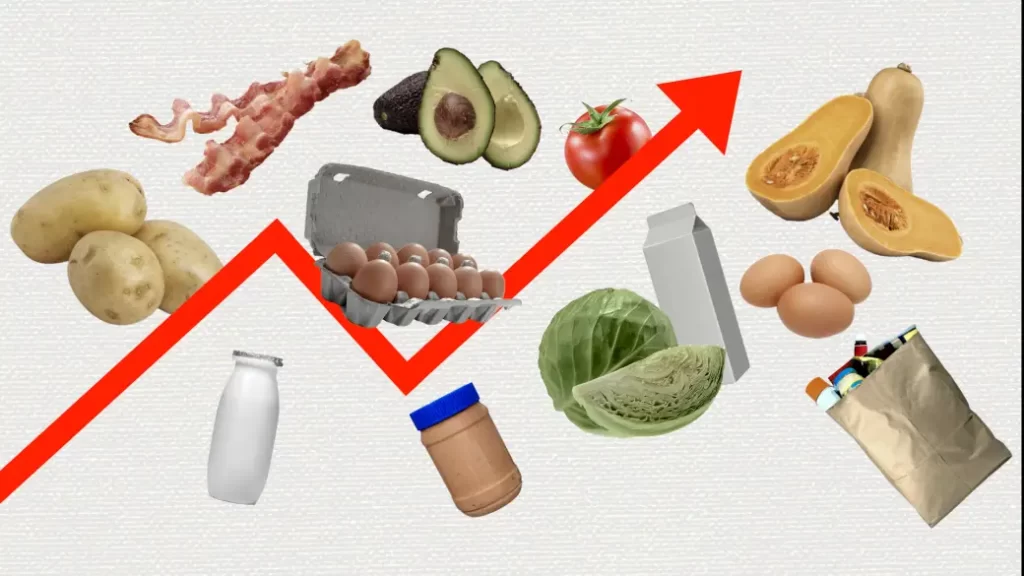In a world where fast food joints and processed foods dominate the landscape, eating healthy can be a challenging endeavor, especially when you’re on a limited budget. However, the importance of a nutritious diet cannot be overstated. It’s the foundation of good health, providing the essential nutrients your body needs to function at its best. The good news is that it’s entirely possible to eat healthily, even when money is tight. In this blog post, we will explore various strategies for success in eating healthy on a limited income.
1. Plan Your Meals
One of the most effective strategies for eating healthy on a limited budget is to plan your meals. Creating a weekly meal plan can help you make the most of your resources. Start by identifying the recipes you want to prepare for the week and make a shopping list based on these meals. Planning ahead reduces food waste and minimizes impulse purchases.
2. Buy in Bulk
Buying staple foods like rice, pasta, beans, and canned vegetables in bulk can save you money in the long run. These items have a long shelf life and are versatile in many recipes. Look for discounts and promotions in your local grocery store, and consider joining a wholesale club if available in your area. When you buy in bulk, you can portion and store items for later use.
3. Embrace Seasonal Produce
Seasonal fruits and vegetables are often less expensive than out-of-season options. Embrace the seasons and enjoy the fresh, affordable produce that is available during that time. You can also take advantage of sales on fresh produce and freeze or can extra portions for later use.
4. Cook at Home
Eating out is typically more expensive than cooking at home. Preparing your meals not only saves money but also allows you to control the ingredients you use, ensuring your dishes are healthy. You don’t need to be a gourmet chef to cook nutritious meals; there are plenty of simple and delicious recipes available online.
5. Limit Convenience Foods
Convenience foods like frozen dinners and precooked snacks may seem like a time-saver, but they often come with a higher price tag and lower nutritional value. Cut back on these items and opt for whole foods that you can cook and prepare yourself.
6. Utilize Leftovers
Leftovers are a budget-conscious eater’s best friend. When you cook a meal, make extra portions to enjoy for lunch or dinner the next day. This not only saves you time but also money. You can also get creative with leftover ingredients and transform them into new dishes.
7. Choose Generic Brands
When shopping for groceries, consider buying generic or store brands instead of name-brand products. In most cases, the quality and taste of generic items are comparable to the more expensive options, but they come at a lower price.
8. Make Your Own Snacks
Instead of buying costly precooked snacks, make your own. Simple, healthy options like homemade trail mix, yogurt with fresh fruit, or cut-up vegetables with hummus are both nutritious and budget-friendly.
9. Use Coupons and Cashback Offers
Keep an eye out for coupons, discounts, and cashback offers. You can find these in newspapers, online, and through various grocery store apps. Combining coupons with sales can result in significant savings on your grocery bill.
10. Compare Prices
Comparison shopping is a valuable tool for saving money on groceries. Before making a purchase, compare prices across different stores in your area. You can also use grocery store apps to check prices and find the best deals.
11. Avoid Impulse Buying
Impulse buying is a common trap that can lead to overspending. Stick to your shopping list, and avoid purchasing items that are not essential to your meal plan. Impulse buys can quickly add up and strain your budget.
12. Cut Back on Meat
Meat is often one of the more expensive components of a meal. You don’t have to eliminate meat entirely, but consider reducing your meat consumption. Opt for plant-based protein sources like beans, lentils, and tofu, which are not only cheaper but also healthier.
13. Utilize Food Assistance Programs
If you’re truly struggling with your food budget, consider looking into food assistance programs like SNAP (Supplemental Nutrition Assistance Program) in the United States. These programs can provide essential support for individuals and families with limited income.
14. Grow Your Own Food
If you have access to outdoor space, consider growing your fruits and vegetables. Gardening can be a fulfilling and cost-effective way to supplement your food supply with fresh, homegrown produce.
15. Learn Basic Cooking Skills
Basic cooking skills are essential for eating healthily on a budget. The more you can do yourself, from chopping vegetables to preparing simple dishes, the less you’ll rely on expensive pre-made or takeout meals. There are countless online resources and cooking classes available to help you improve your culinary skills.
16. Reduce Food Waste
Wasting food is not only bad for your wallet but also for the environment. Use leftovers, get creative with ingredients, and pay attention to expiration dates to reduce food waste. Additionally, consider composting to make the most of food scraps and reduce your environmental impact.
17. Prioritize Nutrient-Rich Foods
When your budget is limited, it’s crucial to prioritize nutrient-rich foods. Focus on foods that provide essential vitamins, minerals, and fiber, such as whole grains, fruits, vegetables, and lean proteins. These items will keep you feeling full and satisfied without the need for excess quantities.
18. Stay Hydrated with Water
Drinking water is not only vital for your health, but it’s also budget-friendly. Avoid purchasing sugary drinks or excessive amounts of bottled water. Opt for tap water or use a water filter if necessary.
19. Embrace Minimalism
Minimalism extends beyond de-cluttering your home; it can also be applied to your diet. Consider simplifying your meals and avoiding overly complex recipes. Sometimes, the simplest meals are the healthiest and most affordable.
20. Seek Community Resources
Many communities offer food banks and community gardens where individuals and families with limited income can access fresh, nutritious food. Don’t hesitate to reach out to local organizations that provide support.
Conclusion
Eating healthy on a limited income is a challenging but achievable goal. By planning your meals, buying in bulk, embracing seasonal produce, cooking at home, and making smart choices at the grocery store, you can enjoy nutritious and affordable meals. Remember that small changes in your shopping and eating habits can have a significant impact on both your health and your wallet. With these strategies, you can take control of your diet and lead a healthier, more budget-conscious life.







160 responses
facebook ad accounts for sale verified accounts for sale buy and sell accounts
fb accounts for sale account sale accounts market
buy tiktok ad account https://tiktok-ads-agency-account.org
tiktok ad accounts https://buy-tiktok-ads.org
buy tiktok ad account https://buy-tiktok-business-account.org